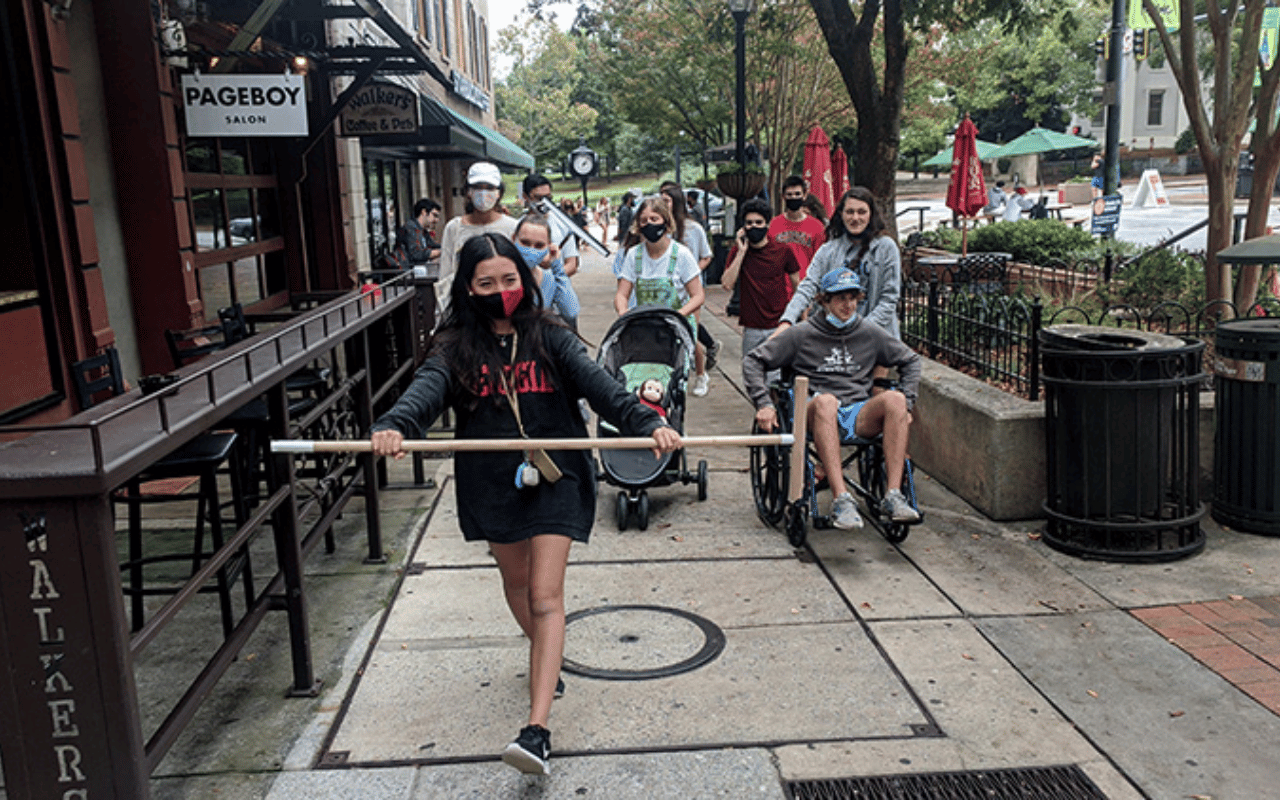Environment, Design, and Teaching in times of COVID-19: PhD student professional development at CED.
Doctoral students at the College of Environment and Design can work on their teaching skills through their assistantships, working as teaching assistants or instructors of record. Such opportunities prepare them for a career in academia and invite them to innovate in the classroom.
This fall, Lynn Abdouni, a PhD Candidate at CED, was an instructor of record for LAND 1500: Design and the Environment, a required course for BLA students also offered as an elective for undergraduate students from other disciplines. Having led studio sections before, she reports that her experience as a first-time lecture class instructor for 50 students in times of COVID-19 presented the expected challenges but was also full of surprises. Lynn received the course plan for the class from then associate dean David Spooner, who also encouraged her to tailor it to her teaching style and infuse it with her own research interests.
Following the Center for Teaching and Learning’s guidelines, Lynn taught the class as F2F-remote Hybrid, where some students attend socially-distanced face-to-face (f2f) instruction during each class session, and the remaining join in through a live feed. The biggest challenge was to break up the zoom fatigue that set in rather early in the semester.
To remedy that, Lynn organized two field trips: one to the Firefly Trail (to look at plant communities and commune with nature), and another one to Downtown Athens (to observe accessibility, use of outdoor space in times of pandemic, and bike infrastructure in Athens). Trips were organized in 2 sections (with a maximum of 25 people per trip), and Lynn noticed that time spent outside the hectic and restrictive environment enforced by the pandemic helped students relax, soak in the knowledge embodied by space, and reflect through the rare informal conversation space.
The class also drew from two resources on the rise: The podcast + short documentary scene, and the now-popular culture of zoom guest-lectureship. Breaking out of the textbook into podcasts and documentaries that tackle issues such as colonialism, redlining, accessibility, and consumerism was a significant step in Lynn’s teaching agenda. In the same vein, with more conferences and meetings going online, asking external parties to join the class and present their work became easy. Lynn invited 3 guest lecturers. Fengjiao Ge, a recent graduate from the Rhode Island School of Design working at !melk, presented her thesis “Flowing Garments” on landscapes of clothing waste. Also invited were CED BLA students Emily Rogers and Zach Orr, to present their internships on stream restoration and urban design (story coming soon). Emily and Zach shared their accomplishments, insight, and enthusiasm with BLA and non-BLA students. This broke up the monotonous rhythm of lecture-discussion-assignment, adding a zest of reality to the class. Guest lectures were lively and full of questions from students, but that was no exception: Lynn reports that her LAND 1500 cohort rarely disappointed when it came to class participation.
Lynn is currently writing her dissertation on using remote sensing data to characterize the urban fabric of the Pan-Arab transportation corridor in the Bekaa Valley, Lebanon. This fall, she was awarded a spot at theFuture Faculty Fellowship Program (3FP), coordinated by the University of Georgia’s Center for Teaching and Learning, where she developed her professional portfolio along 14 other UGA doctoral students with outstanding teaching efforts. Elsewhere at CED, Lynn is co-founder of the Lettus Collective and leads the Virtual Crit Room project.

